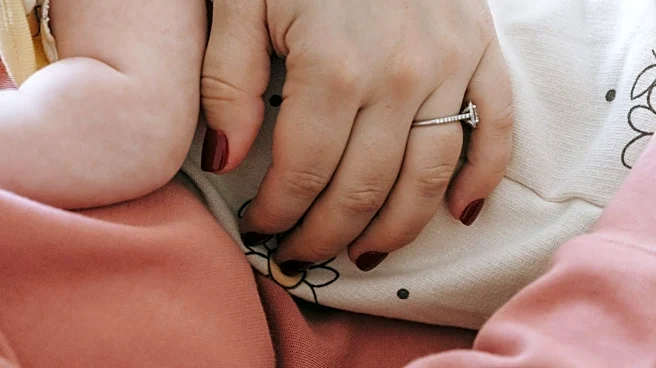What's Happening?
Recent research has revealed that breastfeeding may lead to a long-term increase in specialized immune cells in the breast tissue, potentially reducing the risk of breast cancer. The study, conducted by
Sherene Loi and her team at the Peter MacCullum Cancer Centre, found that women who breastfed had more CD8+ T cells in their breast tissue, which act as local guards against cancerous cells. This immune response was observed to persist for decades, with some cells remaining active for up to 50 years. The findings were supported by studies in mice, which showed slower tumor growth in those that had completed a full cycle of lactation.
Why It's Important?
The discovery of a link between breastfeeding and long-term immune protection against breast cancer could have significant implications for public health and cancer prevention strategies. Understanding the mechanisms behind this protective effect may lead to new approaches in cancer prevention and treatment, particularly for aggressive forms of breast cancer. The research highlights the potential benefits of breastfeeding beyond immediate infant health, suggesting a lasting impact on maternal health. However, it also emphasizes that the decision to breastfeed is personal and may not be feasible for everyone.
Beyond the Headlines
The study's findings contribute to a broader understanding of how lifestyle factors can influence cancer risk and immune function. The presence of CD8+ T cells in breast tissue suggests a 'memory' of breastfeeding that could inform future research into immune-based cancer therapies. Additionally, the research underscores the importance of considering individual choices and circumstances in health recommendations, as not all women can or choose to breastfeed. Further studies could explore how these immune cells retain their protective function and whether similar mechanisms exist for other types of cancer.










